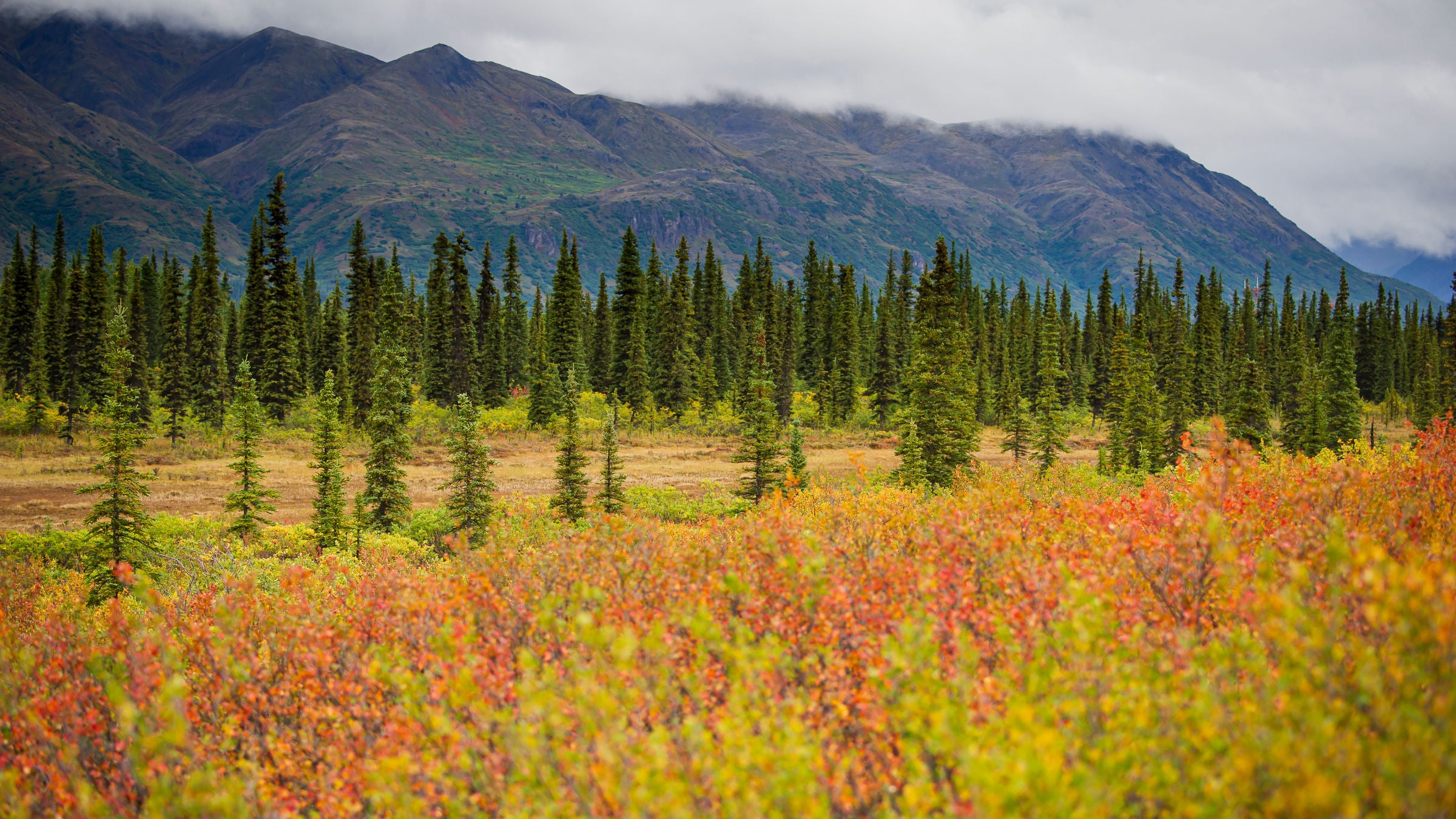More Than a Day's Walk

(Photo: Henrik Karlsson / Moment via Getty Images)
At my shoulder loom the mountains. If I looked I’d see new clouds hiding old peaks. But I could not go back. Not now, after yesterday’s snow.
And at last I am walking toward the gap. A week ago, through this gap in a line of low hills that furrow the plain, I saw the tips of dark spruce trees. It seemed only a small stand of trees, but the tips pointed and promised. Although I had already reached the foothills of the mountains when I saw the trees, I knew that to stand among them I would have to make more than a day’s journey.
No trees stand in the mountains. You live between rock and cloud. But I was born into the mountains. And once, when I was young, before the rock eroded, I believed in them.
No trees stand in their foothills either, or on this tundra before the gap. And in the foothills, among the caribou, rifles thump. I languished many many days among the rifles, while rain fell on soft moss. Peering through my tent door across the sodden tundra, I told myself each day that the Promised Land always lies on the other side of the wilderness.
But now at last the gap lies just ahead. I think it’s the right gap, the one through which I glimpsed the tips of those dark spruce trees. I wish I were sure, though. Yet perhaps I do not really wish I were sure, or without fear.
The threes looked very dark, I remember. But although I saw only their tips I knew how they stood. They stood conical and elegant, standing as trees should, reaching for the sky. Should trees have standing?
Knowing it was more than a day’s walk, I left the foothills late yesterday afternoon as soon as the rain stopped and the clouds lifted to show new snow on the mountains. I walked westward across the tundra, eagerly, toward the distant gap. I had no map. For me, for all of us, this is uncharted country.
I camped last night beside a sullen, windswept tarn. No moon rose. But this morning, early, a herd of caribou drifted past, cropping lichen. Through glasses, I could see veins and arteries standing out on their brown faces.
The caribou drifted eastward, unknowing, toward the rifles. I walked on westward, knowing, toward the gap. Above me soared seven ravens. I walked on across the treeless tundra, alone yet accompanied, toward the trees that would stand as trees should stand.
Should trees have standing? I see a stone’s inscription. I read the inscription yesterday, warm in my tent while rain fell on the soft moss and new snow fell on the mountain’s rock. The words of the inscription stood clear.
And now it is afternoon again, and late, and still I stride across the tundra. Ahead, sunlight slants; but here the wind slides cold off the mountains. It is no longer summer now, as it was when I came to this place such a little time ago. Perhaps it is later than we think.
I walk on. The cold, clear air quickens my lungs. Perhaps the knowing is the difference: I think, therefore I have a brain. And the stone’s inscription ended: “Perhaps we are the living brain of this planet.”
This cold, clear air cannot think–this envelope that is our planet’s lung. Not, at least, the way I do, you do. No more than my lungs think the way my brain does, yours does. Yet if the lungs falter, our brains die.
I stride on, climbing now. Over my shoulder, back in the foothills, a rifle thumps; and now another. And beyond the rifles, inside the closing “Arco” Circle, they are slashing an artery across the tundra—are slashing more than one artery. Yes, perhaps it is later than we think.
But many have read the stone’s inscription, and few have spoken. The old man leaned closer and whispered: “A tree. A rock. A cloud…. The weather was like this…,” he said, “at the time my science was begun.”
The tundra steepens. Beneath my feet, small leaves are almost red, berries almost blue: each organ heeds our planet’s pulse. Only a hundred yards to go. But no trees yet.
Behind, another rifle thumps. And far beyond the Arco Circle lie cities shrouded, rivers damned and atolls immolated. Fifty yards, now. But can the brain slash arteries, defile the lungs, main vital organs—and survive?
I take the last few steps and gain my gap. The trees stand thick and dark, conical and elegant, softening the valley, reaching for the sky, standing as trees should. A river feeds this rich new land. The clouds part: sunlight streams.
So far, no shape has fanned my creature fears. No straight line mars. Beside the trees, a herd of caribou stands brown and calm. Here, all have standing.
I move beyond my gap, into the new land. Old mountains finally dissolve: a brain that cherishes its body can mature—and may transcend. I pass the quiet caribou. And now I stand among the trees.